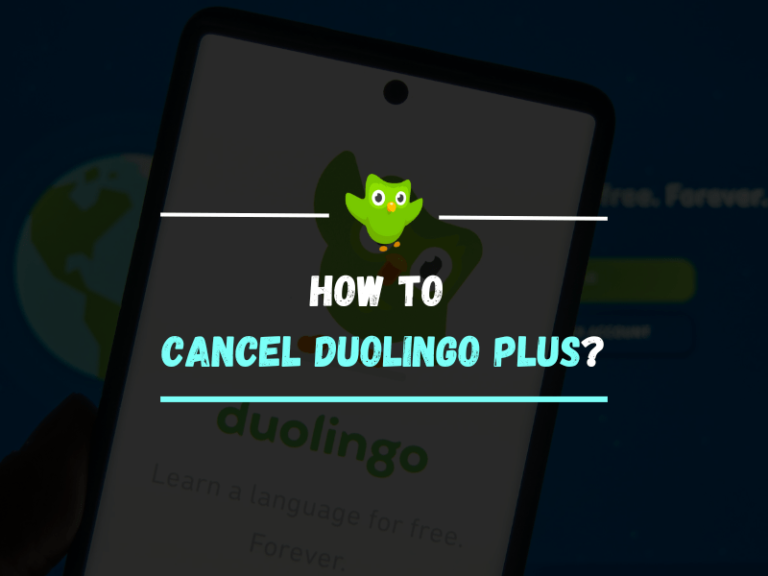Does Duolingo Teach Swear Words?
Greetings, devoted audience! The popular language-learning program Duolingo is today’s subject of exploration. The question, “Does Duolingo teach swear words?” may cross your mind. Let’s go the easy route and find out.
CHECK: Is Duolingo Dangerous?

What is Duolingo?
Let’s discuss Duolingo for a moment before we get into the meat of the discussion. It’s a language-learning software with a fun, avian aesthetic. Millions of individuals use it to learn a new language or hone their existing proficiency in anything from Spanish to Japanese.
Serious suggestion: Have lessons on curse words
byu/form_wrestle_account induolingo
So, About Those Swear Words…
Now, the big question: Does Duolingo teach swear words? The short answer is, not really. Duolingo aims to teach useful, everyday language. This means focusing on words and sentences that people would use in regular conversations, like “How are you?” or “Where is the bathroom?“
Swear words, while a part of many languages, aren’t the main focus for Duolingo. They believe in making the learning experience family-friendly, so everyone, including kids under 15, can use it comfortably.

Why Doesn’t Duolingo Focus on Swear Words?

CHECK: How Do I Get a Refund from Duolingo?
Should I Learn to Swear Words?
You decide! Knowing them may improve your comprehension of fiction works. However, keep in mind that its use in actual discourse might be offensive or unpleasant. Be thoughtful and courteous at all times.
Can You Learn Swears in Duolingo?
While Duolingo primarily focuses on teaching useful, everyday language, sometimes stronger words or slang might appear in context. However, these are usually not the kind of swear words you might think of.
They might be terms that are colloquial or informal. It’s essential to remember that Duolingo aims to be a family-friendly app, so explicit or potentially offensive language is typically avoided.

Which Languages Swear the Most?
It’s a fun and somewhat tricky question! Swearing, or the use of strong language, exists in virtually every language. However, the frequency and intensity of swearing can differ widely based on culture, region, and individual personalities.
For instance, some might argue that Italian or Russian can sound quite expressive with their array of colorful phrases, while Japanese might seem more reserved in comparison.
However, it’s essential to understand that the perception of what’s considered “swearing” can vary. What’s offensive in one language might be a casual phrase in another. So, there isn’t a clear winner in the ‘swearing Olympics.’
Is There a Language Without Swear Words?
There are several methods by which people of different languages show shock, anger, or displeasure. Of course, hardly every language has as many obscene terms as English does. When expressing their emotions, people of certain languages may resort to euphemisms or words having special religious or cultural value.
It is difficult, however, to discover a language that lacks any expressions of great emotion. It’s also important to keep in mind that swearing has grown more socially acceptable in recent decades.
Is It Okay to Swear in Another Language?
Swearing in a foreign language might be alluring since the words may not have the same emotional weight for a foreigner as they do for a local speaker. However, one must use extreme caution. The power of your words will not be wasted on native speakers just because you are using a different language.
It’s always recommended to understand the context and cultural implications of any strong language before using it. Swearing in a language you’re not fluent in can lead to misunderstandings or unintentionally offend someone.
Does Duolingo Teach Sign Language?
Duolingo had not introduced a course specifically for teaching sign language. Sign language is a visual and spatial language, making it a bit different from spoken languages.
Teaching it requires a different approach than the one Duolingo traditionally uses for spoken languages. However, if you’re interested in learning sign language, there are many dedicated resources and platforms available that focus on this unique and essential form of communication.
Frequently Asked Question
Does Duolingo teach swear words in any of its courses?
No, Duolingo primarily focuses on everyday language and avoids teaching explicit or potentially offensive swear words to maintain a family-friendly learning environment.
Are there any languages known for using a lot of swear words?
All languages have their own set of strong expressions or swear words. However, the perception of which languages swear the most is often based on cultural biases and personal experiences. Remember, what’s considered swearing in one culture might be a casual phrase in another.
Can you find a language that has no swear words at all?
While every language has ways to express strong emotions, not all of them have “swear words” in the same sense as English. Some might rely on euphemistic expressions or culturally significant terms. It’s tough to find a language completely devoid of any form of strong or emotional expressions.
Is it okay for me to use swear words in the language I’m learning?
Using swear words in a new language can be risky. While it might not feel the same to you as swearing in your native tongue, the words can still be offensive to native speakers. Always understand the context and cultural implications before using strong language in another language.
I heard Duolingo introduced a sign language course. Is that true?
Even though only English has “swear words” in the literal sense, every language has a way of expressing intense feelings. Some people may use slang or jargon with strong cultural connotations. It’s difficult to develop a language that has no words for intense feelings.
In Conclusion
In a safe and welcoming setting, the friendly bird program Duolingo is ready to help you learn a new language. Even if there aren’t many f-bombs, there will be plenty of idioms and slang that will improve your ability to talk to people from all over the world.
Keep in mind that the main goal of any language is to facilitate communication. Best of luck with your academics!
Ref: https://www.quora.com/Why-do-people-learn-curse-words-first-in-foreign-languages






